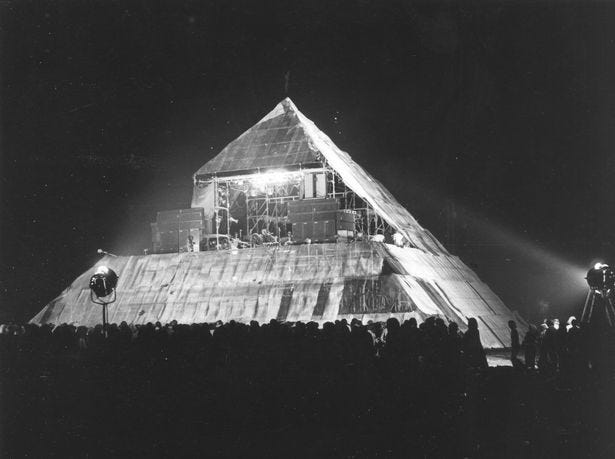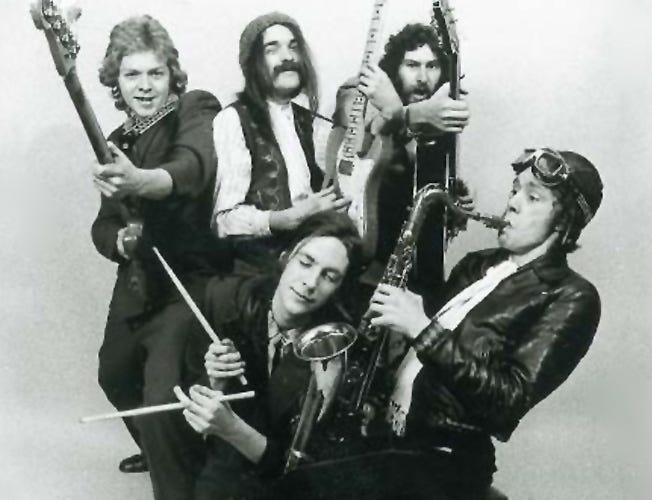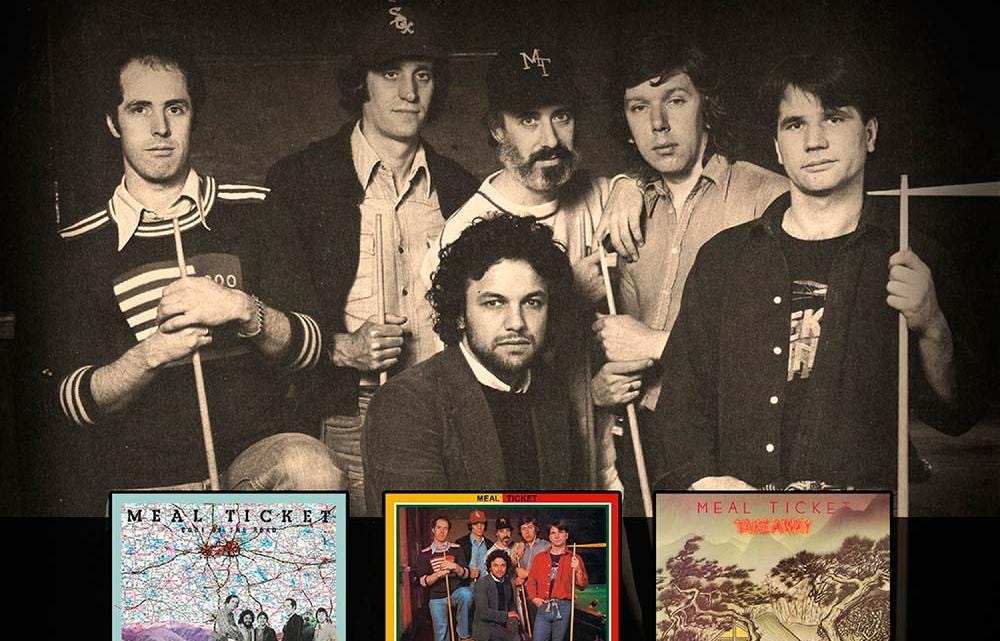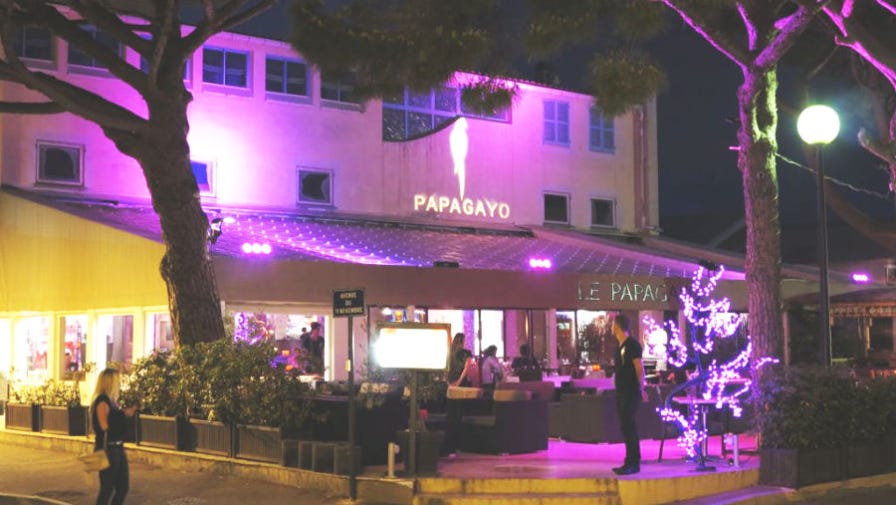Le Papagayo: A nightmare in St Tropez
I can’t remember the exact date, it’s all a little hazy from the 70s.
What I do remember is the following:
Living in a squat in Maida Vale, I’d drifted into working at festivals as part of a building crew run by Bill Harkin, well known as the designer of the first pyramid stage (for the second year of the festival in 1971) at Glastonbury.
After the festival I went back to squat life in Maida Vale and a daily routine best suited to the 70s: breakfast at the cafe in Bristol Gardens, band rehearsals (I was a competent rock drummer and percussionist), the odd film music session, gigs (I had a small profile in the 70s) and trawling round the pub circuit – this was the height of ‘pub rock’: The Kensington, The Hope & Anchor (first HQ for Stiff Records*), The Red Cow in Hammersmith and the Nashville Rooms were some of the go to venues hosting ‘pub rock’ on a nightly basis. You could see, and drink with, some of the most influential players of the 70s and beyond, people like Elvis Costello, Ian Dury & the Blockheads, Nick Lowe, Wilko, and Paul Carrack.
One night, I can’t remember when or where, I saw a new band called ‘Meal Ticket’. They were good, a classic mixture of country, rock, and blues with a singer called Willy Finlayson who had a really authentic blues voice: all bottom of the Whisky bottle and rusty nails. After the gig, I met their manager, an American called Mike Ross, we got on and for a reason that escapes me, he asked me if I wanted to come and work for him/them. He was a full-bore American with big ideas and big ambitions for Meal Ticket that included playing on the pub circuit (purely as a vehicle to hone the act and to have somewhere to invite record company A&R people to) for a short time, doing a UK tour as a support act to a bigger band and then to replicate that in the US. This was the classic route to success for so many bands in the 70s and 80s, including The Police and Dire Straits.
I was going to be their tour manager, a rather grandiose title for a roadie, but it was the closest I’d been to a real job, so I agreed to start work.
Meal Ticket were very successful on the pub circuit playing to big audiences; as per the plan, we started to do some slightly bigger gigs as a support act. One standout gig was supporting Ry Cooder at the Rainbow in London, which morphed into an unforgettable musical party at Rick Jones’ (Meal Ticket keyboard player) house.
At this point I need to tell you a little bit about Mike Ross. It may go some way to explaining what happened next in the South of France.
Mike was married to a Scandinavian woman called Ritva Ross, and together they ran a very successful knitwear company called ‘Ritva Ross’. Their knitwear featured different styles and unique stitching and was famous for producing artist driven limited editions with the likes of David Hockney, Elizabeth Frink and Patrick Hughes (people had them framed and hung them on the wall); they had a Ritva man collection and even made sweaters for Paul McCartney’s ‘Wings’. The company started in 1966, and by this time, around 1972, it was in its heyday.
But Mike wasn’t a very good businessman. The brains of the operation was Ritva, and Mike’s job seemed to be wearing really nice sweaters at gigs and talking loudly about his grandiose plans for Meal Ticket. But the band thought he was good, he had money, and he talked the talk.
Everyone had been working very hard and needed a holiday, so rather than shut up shop and lose momentum, Mike booked a gig in the South of France at a club called ‘ le Papagayo’. No one knew why or how he got the gig, but this was before the Internet, so no one could check what the club was like, what type of music it played, or who else had played there.
But the gig included a house with a private beach, all meals, and a significant bar tab. It was for two weeks: Mondays off, one set a night on Tuesday, Wednesday & Thursday, and two sets a night on Friday and Saturday. Without any further knowledge of the club or musical expectations, everyone agreed, and it was booked.
The guys in the band flew, and I and two other roadies drove overnight to St Tropez; the house was good, plenty of room for us and anyone else who might turn up to party during the two weeks. Someone from the club came to get me and the two roadies to show us where to eat and where to set up.
We arrived at lunchtime and joined the staff at a couple of tables at the back of the club for a typical kitchen staff meal, all fresh ingredients and plenty of local Rose to wash it down with. We were then shown the interior of the club. Looking to all intents and purposes like a cheap Soho strip club, the exterior featured plastic palm trees around a raised patio with Gold railings. This enclosed a seating area with glass tables and classic nightclub Gold chairs with Red velvet seats. As we made our way to the entrance, we looked at each other, mouthing:
WTF is this”;
it was our worst nightmare: a low ceiling made lower with numerous glitter balls, a tiny stage with barely enough room for the band’s gear, a dance floor which looked surfaced with stainless steel, surrounded by the same tables and chairs from the patio.
We set up the gear ready for the first evening’s show and reported back to the band, but sight unseen, it was hard to convey what we’d just seen. It wasn’t until soundcheck later in the afternoon that it started to sink in; people weren’t happy (the band) but at that point there wasn’t much we could do about it, because the person that booked the gig, and the obvious choice to advocate on our behalf, the manager, was missing, in fact had mysteriously had something important come up at the last minute. There was a promise to arrive in a couple of days, but that didn’t help us now.
We duly arrived at 9 pm to start playing and were met by disco music shaking the Golden chairs, and the dance floor filled with dancers, dancing to disco music.
Then I noticed the clientele, the other clientele, not the dancers. The older men in booths, just drinking and talking, accompanied by very young women. I found out later that Le Papagayo was a favourite haunt of subsequently disgraced mayors of French provincial towns and record company heads, and they were here and looking very much like French gangsters.
The band started, the dance floor emptied, and stayed empty for the next four nights until we got fired.
There were recriminations, and everything became ‘band-like’. Instead of moving on, blame had to be apportioned, then the infighting started and never really stopped until the final implosion. Mike Ross never really appeared again, Ritva Ross went on to become very successful ‘sans’ husband, and I went on to a very short career in music publishing, but that’s for another day and another story.
And Meal Ticket died like so many other great bands of the time; you really needed to have the stars aligned to be successful then.
*designers of the famous ‘If it ain’t stiff it ain’t worth a fuck’ T Shirt.
Have you ever heard of Mealticket? Or do you have any knowledge of the music of the 70s period? Share your experiences in the comments below.
Image credits: All images copyright the author Nick Garnett
Introducing Contributor, Nick Garnett:
Visit her Contributor Page — Explore more of Nick’s work







Migration underway :). Discovering gems!